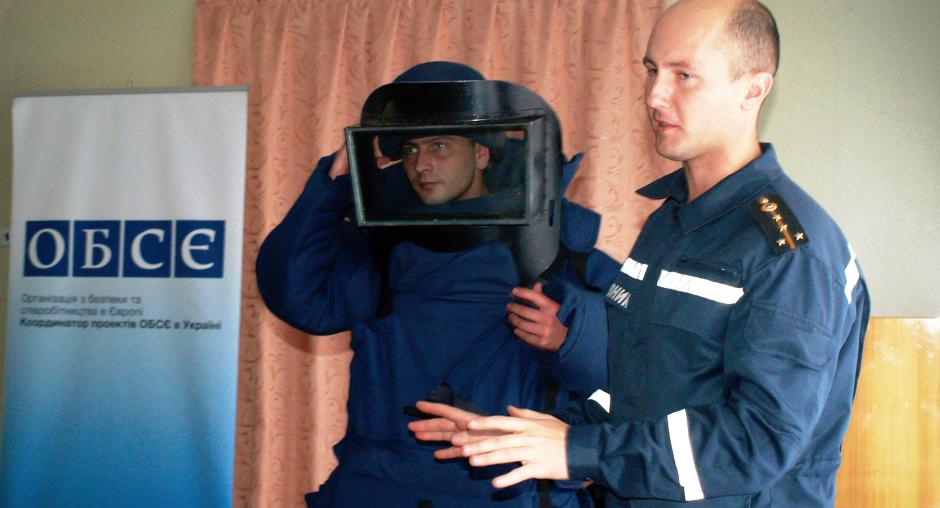OSCE educates schoolchildren about threats of unsafe military ammunition ahead of autumn vacations in Ukraine

As schoolchildren in Ukraine prepare to start their autumn vacations on 28 October 2013, the OSCE Project Co-ordinator in Ukraine (PCU) helped the State Emergency Service of Ukraine to conduct awareness-raising lessons on the dangers of unsafe military ammunition.
From 21 to 24 October, more than 320 children aged 11 to 17 watched a risk educational video produced by the PCU, listened to lectures by explosive safety professionals and had quizzes, to help understand how to safely handle situations where explosives are encountered.
Communities where dangerous military items are frequently being discovered or likely to be found were focused on.
One of them – the town of Korosten, located in Zhytomyr region, northern Ukraine close to the former military range Ihnatpil, was used for infantry and aviation weapon exercises during the Cold War era. Since 2010, the regional emergency department’s pyrotechnicians have detected over 14,000 ammunition items, aerial and mortar bombs, grenades, and artillery shells here. Due to economic hardships, many people in this rural region search for and collect munitions at the Ihnaptil range area to sell as scrap metal, despite the fact that handling these deadly materials puts them in huge danger.
Similar situations are observed among people living in Velyka Bahachka, Poltava region, central Ukraine. Here, long-range bombers practiced during the Cold War in the nearby aviation range, which is now being cleared of the numerous unsafe ammunition leftovers.
The legacy of the World War II means that old explosive ordnance is still a residual problem in Ukraine.
Awareness-raising exercises were also conducted with pupils in Korsun-Shevchenkivsky, Cherkasy region--the scene of one of the fiercest battles of 1944, and in Fursy village, Bila Tserkva district, Kyiv region, where large ammunition depots were located. The village was also the site of a military transportation accident in the 1960s, when a military cargo train derailed and more than 2,000 tonnes of munitions contaminated the rural surroundings. In 2009-2011, the PCU assisted Ukraine’s authorities in clearing the area by providing equipment for detection of explosives and personal protective gear.
Since 2011, the OSCE Project Co-ordinator has been supporting Ukrainian authorities’ efforts to reduce risks posed by explosive remnants of war and unsafe ammunition through educational and awareness-raising activities. The PCU supported the production of an animated clip and a documentary for children, as well as design and printing of information posters distributed to Ukrainian schools this year.
